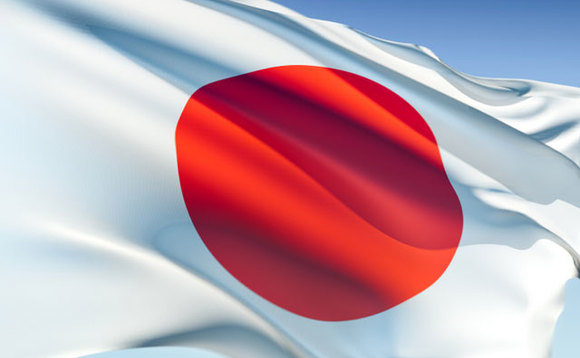
INCJ: Collaborator or competitor?

The Innovation Network Corporation of Japan (INCJ) has always divided opinion. The government-run entity, which operates with the support of local corporations, is intended to support new growth businesses.
Last week it committed $680 million to Toshiba Corp’s takeover of Swiss electronic-metering company Landis+Gyr.
INCJ’s role is essentially to provide liquidity to get the deal done. Toshiba agreed to purchase Landis+Gyr in May for $2.3 billion, setting up a special purpose vehicle with initial capital of $1.7 billion. INCJ will buy a 40% stake in the vehicle, diluting Toshiba’s interest to $1.02 billion, and thereby leaving the conglomerate with sufficient funds to absorb Landis+Gyr’s $600 million in net debt.
The government entity has made 16 investments since its inception in 2009, and this is its third offshore. In May 2010, INCJ participated in a Mitsubshi Corp-led consortium that paid A$225 million ($202 million) for United Utilities Australia. Six months later, it backed Marubeni Corp in the buyout of Aguas Nuevas, Chile’s third-largest water business, reportedly worth $498 million.
Japanese private equity firms that might have been interested in these deals are entitled to ask whether INCJ is a financial facilitator or a direct competitor.
“I think private equity firms would have to compete with INCJ for some attractive deals. But, If INCJ’s investment accelerates industrial restructuring or helps Japanese company to develop business overseas, then its activities might pay off,” one industry source tells AVCJ.
Adding value
The United Utilities Australia and Aguas Nuevas deals stand out as examples of how INCJ can add value. Private equity investors often struggle with utilities deals overseas due to regulatory barriers or concerns about selling a core asset to a foreign party. With INCJ on board, though, Mitsubishi and Marubeni could point to its partnership with the Tokyo metropolitan government’s bureau of waterworks and promise sellers access to high-end technologies and best practice strategies.
In addition to utilities, INCJ has targeted healthcare, clean energy, electronics and agriculture. While it could claim to be pursuing a social and economic agenda – supporting companies and technologies that improve people’s lives – its recruitment policy suggests something different. INCJ appointed Haruyasu Asakura, a former managing director of The Carlyle Group as COO and signed up Kimikazu Noumi, former chairman of Aozora Bank as CEO.
Again, the question seems to be: Is INCJ’s strategy based on the wholly profit-driven model of US buyout firms or does it seek to offer wider benefits to entrepreneurs and nascent industries?
Certainly, some GPs think the authorities could put their money to better use. “The government does not support private equity industry in Japan, but it invests in fund that it part owns,” observes one fund manager. “If they have the capacity to inject government money into INCJ then why is the state pension fund not being pushed to invest in local private equity funds? INCJ does is exactly what general private equity firm does.”
Friends in high places
Regardless of what industry players say, INCJ will remain in a strong position to bid off deals simply by virtue of its array of shareholders that boast the broad business connections and industry expertise to identify and execute investments.
INCJ received initial capital of JPY90.5 billion, with JPY82 billion coming from the government and the remainder committed by 19 private corporations. The Development Bank of Japan and Shoko Chukin Bank were co-founding partner, contributing JPY1 billion and JPY500 million, respectively.
The other participants, each of which put forward JPY500 million, include Toshiba Corp., Tokyo Electric Power Corp., Panasonic Corp., Mizuho Corporate Bank, Bank of Tokyo-Mitsubishi UFJ and General Electric Japan.
INCJ has government guarantees to cover up to JPY800 billion in investments, which puts it total capacity at around JPY900 billion. Portfolio companies include Peach Aviation, Japan’s first budget airline established by ANA and Far Eastern Investment Group, controlling stakes in Toshiba and Sony’s consolidated LCD panels business, and Enax, a domestic lithium-ion battery manufacturer. It also made one venture investment in Anaeropharma Science, which is developing anti-cancer medicine.
Having added to its portfolio, INCJ is looking to raise another JPY26 billion in funds through an auction to be held on August 1. The minimum investment lot will be JPY100 million.
“There are other ways to grow the local private equity industry,” opines one domestic GP. But the INCJ project still has 13 years to run and doesn’t appear to be slowing.
Latest News
Asian GPs slow implementation of ESG policies - survey
Asia-based private equity firms are assigning more dedicated resources to environment, social, and governance (ESG) programmes, but policy changes have slowed in the past 12 months, in part due to concerns raised internally and by LPs, according to a...
Singapore fintech start-up LXA gets $10m seed round
New Enterprise Associates (NEA) has led a USD 10m seed round for Singapore’s LXA, a financial technology start-up launched by a former Asia senior executive at The Blackstone Group.
India's InCred announces $60m round, claims unicorn status
Indian non-bank lender InCred Financial Services said it has received INR 5bn (USD 60m) at a valuation of at least USD 1bn from unnamed investors including “a global private equity fund.”
Insight leads $50m round for Australia's Roller
Insight Partners has led a USD 50m round for Australia’s Roller, a venue management software provider specializing in family fun parks.








